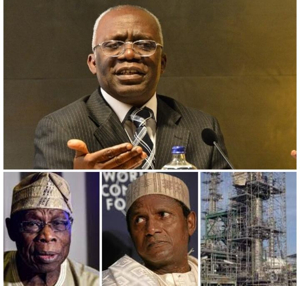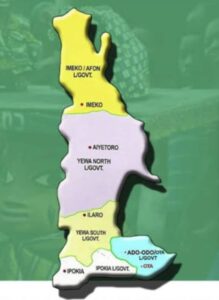
In a recent statement, prominent human rights lawyer Femi Falana shed light on the reasons behind former President Umaru Musa Yar’Adua’s decision to cancel the controversial sale of the Port Harcourt refinery to a consortium led by Aliko Dangote. This revelation comes as part of an ongoing discourse regarding the privatization of Nigeria’s public assets and the legal frameworks governing such transactions.
Falana emphasized that the cancellation was a crucial move aimed at addressing significant legal and ethical breaches associated with the sale while safeguarding Nigeria’s national interests. He pointed out that under the Privatisation and Commercialisation Act, the Vice President is designated as the chairman of the National Council on Privatisation (NCP), which is responsible for overseeing the privatization of public enterprises.
However, Falana alleged that former President Olusegun Obasanjo circumvented this legal requirement by sidelining then-Vice President Atiku Abubakar and directly managing the privatization process for several state-owned enterprises.
The timeline of events leading up to this cancellation is particularly noteworthy. On May 17, 2007, President Obasanjo sold a 51 percent stake in the Port Harcourt refinery to Bluestar Oil for a mere $561 million. Shortly thereafter, on May 28, 2007, he also sold a similar stake in the Kaduna refinery to Bluestar Oil for $160 million. Falana revealed that Bluestar Oil was a consortium comprised of Dangote Oil, Zenon Oil, and Transcorp—a company in which Obasanjo allegedly held significant shares through a “blind trust.” This arrangement raised serious questions about conflicts of interest and transparency in the privatization process.
The sales drew widespread criticism from various stakeholders, including key labor unions such as the National Union of Petroleum and Natural Gas Workers (NUPENG) and the Petroleum and Natural Gas Senior Staff Association of Nigeria (PENGASSAN). These unions voiced their concerns over due process, claiming that Nigeria had been shortchanged in these transactions. According to Falana, they argued that the shares acquired in the Port Harcourt refinery for $561 million were actually worth approximately $5 billion—a stark contrast that underscored potential corruption and mismanagement.
In response to these grievances, NUPENG and PENGASSAN organized a four-day strike in June 2007 that significantly disrupted economic activities across Nigeria. The strike was only called off after assurances from the federal government that an investigation into the sales would be conducted. Following this investigation, President Yar’Adua made the decisive move to annul both refinery sales, citing their non-compliance with established legal frameworks. Notably, Falana pointed out that this cancellation was not challenged in any court, as it was executed contrary to both the letter and spirit of the Privatisation and Commercialisation Act.
Falana commended NUPENG and PENGASSAN for their proactive stance in advocating for Nigeria’s national interest during this tumultuous period. He urged these unions to remain vigilant amid renewed discussions surrounding the privatization of Nigeria’s refineries, emphasizing that any future attempts at privatization must adhere strictly to legal protocols to prevent similar controversies.
The implications of Yar’Adua’s decision resonate deeply within Nigeria’s ongoing debate over privatization. Advocates for transparency and accountability continue to stress the importance of due process in managing public assets. As Nigeria grapples with its energy crisis and seeks sustainable solutions for its refineries, Falana’s insights serve as a reminder of the need for ethical governance and adherence to legal standards in all transactions involving national resources.
Share your story or advertise with us: Whatsapp: +2348033202396 Email: sentinelnewsng@gmail.com










